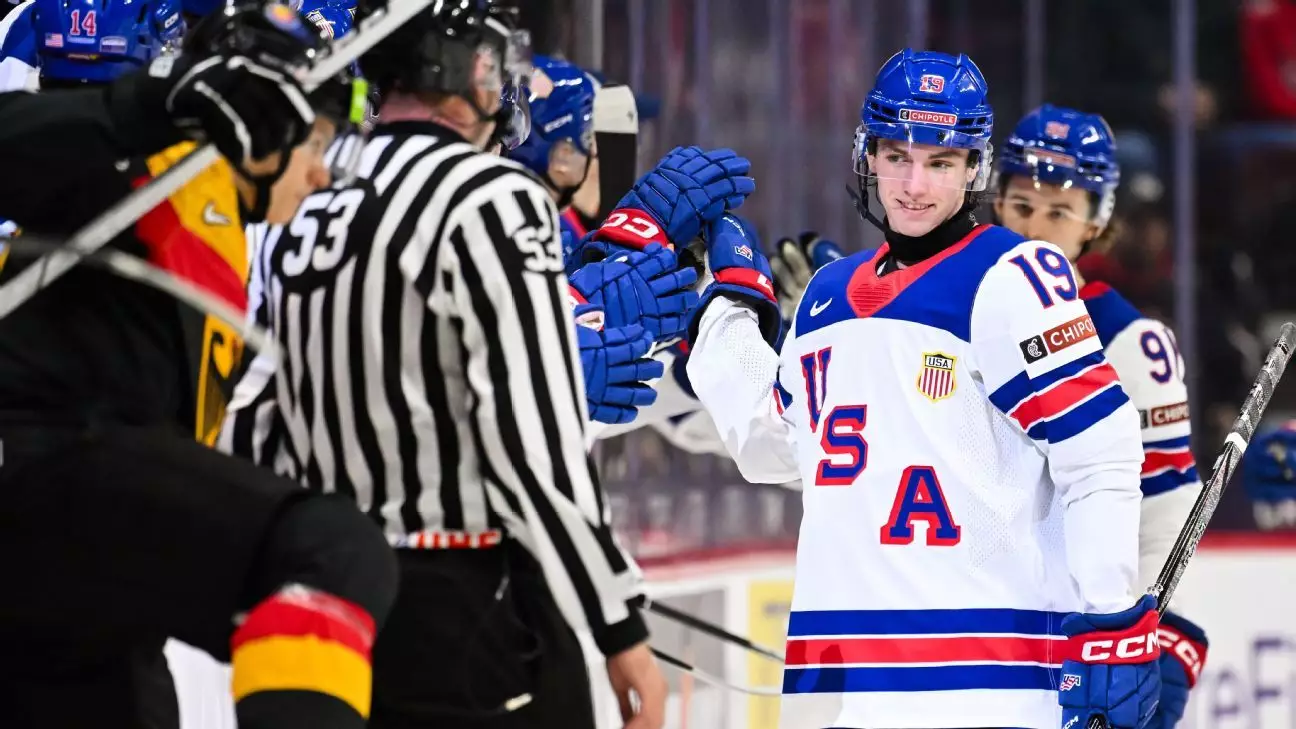Hockey is not just a game of skill and strategy; it’s also a canvas for cultural expression, particularly when it comes to celebrating successes on the ice. Each year at the IIHF World Junior Championships, young athletes not only represent their countries to compete for the coveted gold medal but also engage in a unique tradition: selecting a goal celebration song. This tradition has garnered as much attention as the games themselves, creating lively debates among fans, especially in Canada, about what tune will become synonymous with their team’s triumphs.
Over the years, the choice of goal celebration songs has evolved into a fascinating element of the tournament’s culture. These songs serve as a backdrop to the emotional highs of the games and resonate with the players and their supporters, amplifying the euphoria of scoring. As a result, discussions around these choices have turned into hot topics for analysis. In the case of the 2025 tournament, Team USA’s selection—”Free Bird” by Lynyrd Skynyrd—has sparked debates about what constitutes the perfect goal anthem.
Comparatively, the 2025 selection seems to fall short of the excitement generated in previous years by songs like DJ Kool’s “Let Me Clear My Throat” and Blur’s “Song 2.” Fans have expressed sentiments of nostalgia and disappointment, longing for more energizing tunes that complement the fast-paced rhythm of hockey. However, the choice of “Free Bird,” a classic rock staple, suggests a deliberate move towards timelessness, aiming to establish an emotional connection while reinforcing team camaraderie.
The selection process for these songs is anything but arbitrary. In the case of Team USA, players actively contribute to the discussion of what song to select, indicating a strong team dynamic and a collaborative spirit. According to defenseman Zeev Buium, the choice emerged organically during a bus ride, highlighting the informal yet meaningful conversations that occur among teammates. This process reflects a deeper sense of identity and unity, as players curate a shared experience that can resonate beyond the games themselves.
Buium noted that goalie Jacob Fowler was particularly fond of “Free Bird,” illustrating the influence that individual players can have in deciding collective traditions. This choice emphasizes how shared tastes in music can enhance team bonding, creating a stronger unit on the ice. The players’ enthusiasm further contributes to how these songs will inevitably be remembered—not just as songs attached to goals, but as cultural markers of a unique moment in sports history.
Team USA’s decision to use the 4:45 section of “Free Bird” symbolizes a tactical choice as well. After five minutes of mellow melodies, the climactic guitar solos provide an exhilarating rush that matches the high-energy context of scoring a goal. This careful selection demonstrates a keen understanding of the dynamics involved in goal celebrations, aiming to engage both players and fans alike. The catchiness of the song represents an opportunity for interaction, as players and onlookers immerse themselves in the moment.
The significant impact of the song was evident in Team USA’s opening match, where it resonated with fans and contributed to the overall atmosphere in the arena. As the team achieved a decisive 10-4 victory against Germany, it’s clear that the choice was more than just a musical background; it was part of creating a compelling narrative of victory. According to defenseman Cole Hutson, the song’s rhythmic qualities make it easy to sing along, establishing an auditory memory that players and supporters will carry with them, potentially long after the tournament concludes.
As the tournament progresses, Team USA aims to continue hearing “Free Bird” played frequently, with hopes of solidifying their position in the championship game scheduled for January 5, 2025. The interplay between music and play remains significant; it enhances engagement, motivates players, and creates lasting memories. In any sport, the music associated with victory can outlive the moment itself, becoming part of a cultural tapestry woven through celebration, nostalgia, and identity.
While the choice of goal celebration songs at the IIHF World Junior Championships may seem trivial at first, it holds substantial meaning for players and fans alike. It reflects both tradition and innovation, illustrating how sports can intersect with culture, teamwork, and community spirit. In this case, “Free Bird” may not just be a song but a symbol of unity, aspiration, and the relentless pursuit of hockey glory.


Leave a Reply